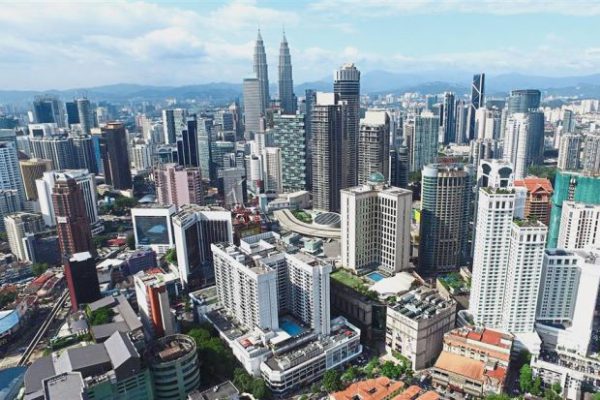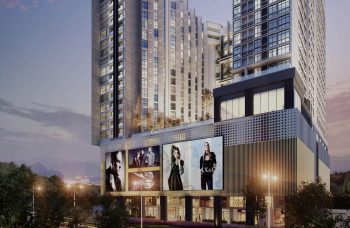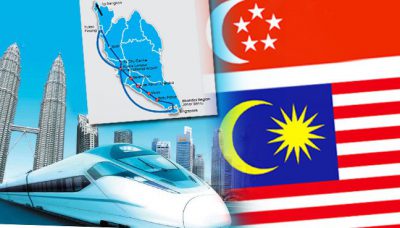Foreigners ‘extremely cautious’ on investing in Malaysia, says expert
Foreign investors would be extremely cautious on investing in Malaysia, given that Malaysia faces multiple challenges, including the absence of political clarity and long-term economic policy, at a time when they are worried about the global economic outlook. Investment house Capital Dynamics managing director Tan Teng Boo said the Covid-19 outbreak has not helped the situation either. He said Malaysia is short of skilled workers and talent, adding that the country does not have the people to cater to labour-intensive or high-end FDI. Tan said Malaysia’s poor economic growth cannot be blamed on the Covid-19 as the country’s economy had been declining before the outbreak. He said the stimulus package, which will be revealed next week, will help buffer the damage to some extent, especially for the hospitality and tourism-related industries. “However, the problems that Malaysia face are not just short term, but are long term, structural problems. Malaysia has reached a stage where we can muddle through or really reform.” (The Sun Daily)
Stop-work order only for The Address II, says FT minister
The stop-work order is specific only to condominium project The Address II in Taman Desa, Kuala Lumpur, and not its sister development, The Address, as both were granted a different development order, said Federal Territories Minister Khalid Abdul Samad today. Khalid said the collapse had only occurred at The Address II, and not The Address, therefore construction work at the latter does not have to stop. The collapse of a slab at The Address II has raised safety concerns and revived several queries over land conversion and absence of engagement with residents prior to approval of two high rise condominium blocks. The minister added that cancelling the project was not an option as there were legal issues that involved the government compensating the developer the losses that would be incurred. The land had been earmarked as a green lung but had its status changed in 2015 and the development order was issued in 2017. (Malay Mail)
Job offers delayed in Asia’s financial hubs in virus fallout
Financial firms operating in Singapore and Hong Kong are delaying hiring as the coronavirus outbreak disrupts their businesses. Both domestic and foreign institutions have slowed recruitment, according to headhunters in the financial hubs. They’ve been impacted by quarantines, restrictions on travel to and from China, remote working arrangements and decisions not to conduct face-to-face interviews. It’s another aspect of the fallout from the virus, which has also caused factory closures, disrupted supply chains and initiated the world’s largest work-from-home experiment. Bloomberg spoke with six recruitment firms, all of which confirmed the slowdown. Hiring processes and relocation plans are taking longer at most companies because of logistical difficulties as companies are not risking international travel and client meetings. A few banks and asset managers are reviewing their hiring budgets for 2020. (Bloomberg)
US removes China from list of developing countries
China, together with some other countries, has been removed from the United States’ list of ‘developing’ nations and considered as a ‘developed’ country when it comes to international trade, according to a recent notice issued by the Office of the US Trade Representative (USTR). The US also revoked its special preferences for a list of World Trade Organization members, including Brazil, India, Indonesia and South Africa. The removal of these countries from the US’ internal list of developing nations will make it easier for the US to launch an investigation into whether these countries are unfairly subsidising exports. Xue Rongjiu, deputy director of the Beijing-based China Society for WTO Studies, said the US announcement has undermined the authority of the multilateral trading system. To update its internal list, the USTR said it has taken into consideration several economic and trade factors, such as the level of economic development of a country and a country’s share of world trade. For instance, the USTR considers countries with a share of 0.5% or more of world trade to be “developed” countries. According to the 1998 rule, the threshold was 2% or more. It has also not considered “social development indicators such as infant mortality rate, adult illiteracy rate and life expectancy at birth” as a basis for changing the designation. (The Star Online)
Malaysia sees Covid-19 situation improving
Malaysia continues to show improvement in the Covid-19 situation as two more patients of the coronavirus have recovered. Health Minister Datuk Seri Dr Dzulkefly Ahmad said 17 Covid-19 patients have recovered and had been discharged in Malaysia. “No new cases were reported to the National Crisis Preparedness and Response Centre (CPRC) today. The total of confirmed Covid-19 cases in Malaysia remains at 22 cases, with five cases still receiving treatment in hospitals,” said Dzulkefly. He said the five patients were in stable condition. (The Star Online)





